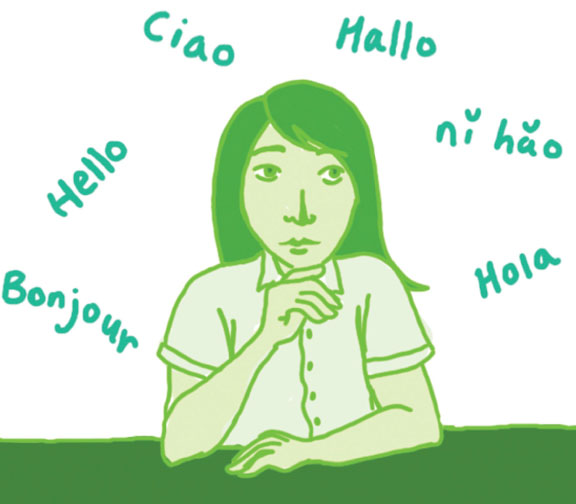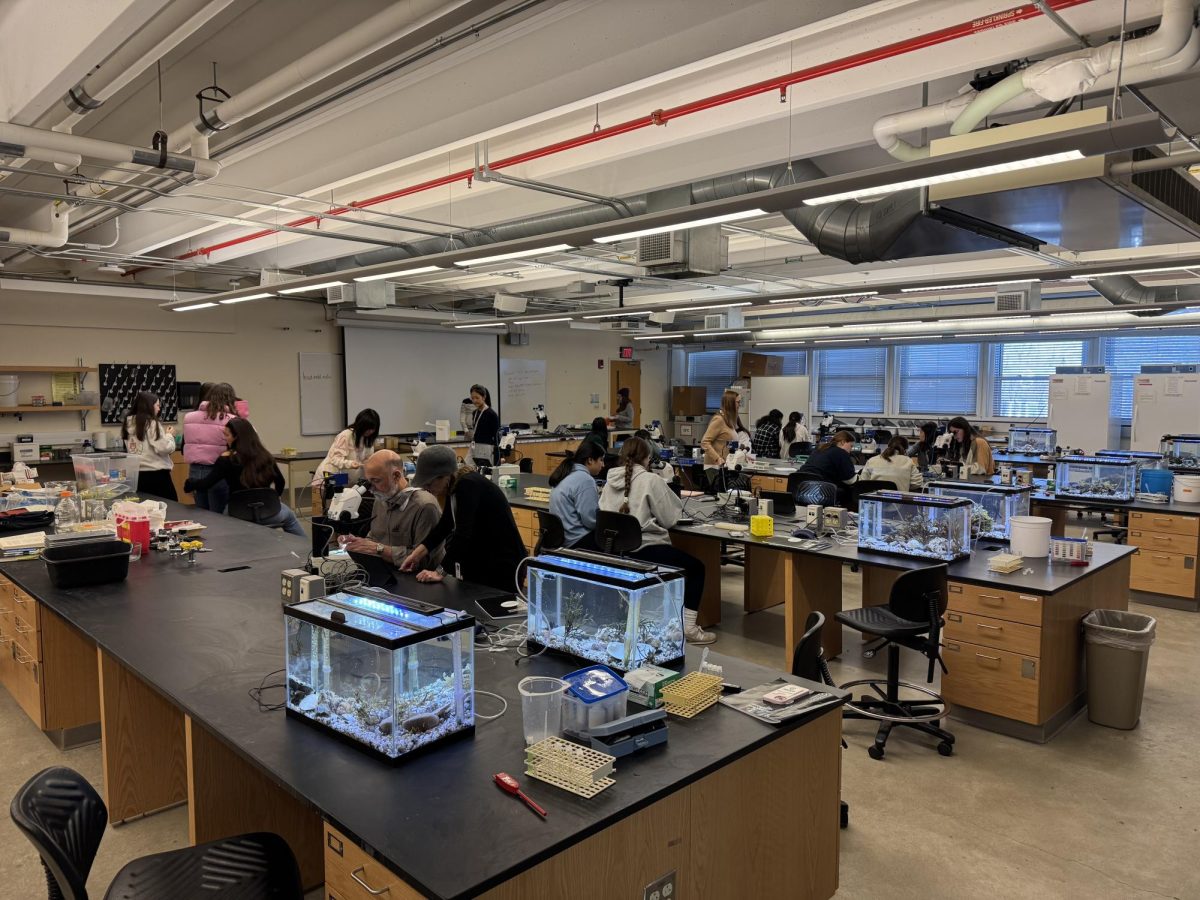
International students overcome the struggles of communicating and studying in a second language
Unsure of what to expect, senior Claire, an international boarder from China, walked into the Hockaday classrooms for the first time in the tenth grade. Having already studied in Australia, Claire was familiar with English but was unsure about the American culture and dialect and whether her English skills would be good enough.
“Idioms and certain sayings just do not translate,” she said.
Elizabeth Smith, the Director of English for Speakers of Other Languages, said that every boarder is required to take the Test of English as a Foreign Language exam to show a certain amount of English proficiency before being admitted. Nonetheless, boarders said they still encounter difficulties to fully immersing themselves in a new culture along with a new language.
To help boarders acclimate to regular Hockaday English classes, they are required to take at least one year of Essentials English while auditing a regular English class at the same time. This helps them improve their language skills and allows them to experience required English classes without the pressure of a grade, said Smith.
“While there is no specific cutoff number, there is a general range of scores that girls who are usually accepted receive,” Smith said.
One of the challenges that boarders generally face when attending Hockaday is growing accustomed to the humanities department. Claire said that classes such as history and English were the hardest at first because it took her “more time than the other students” to complete the large amount of required reading.
Math and science classes, on the other hand, were easier because most of the equations are “exactly the same and crossed cultures,” Claire said.
Another challenge that many international boarders face is adjusting to the culture and acclimating to idioms that do not always translate directly back to their first languages.
Sophomore Jennifer, a boarder from South Korea, said she learned certain sayings by listening to others, writing down phrases and trying to use them afterwards.
When Jennifer came to Hockaday in the eighth grade she had to adjust to the way Americans respond to certain questions.
“If I ask, ‘You haven’t done your history homework?’ and if my Korean friend goes ’Yeah,’ that means she hasn’t done it. But when my American friends says ‘Yes,’ it means she has done it,” Jennifer said.
Jennifer said she “sometimes had trouble asking teachers [questions] and would be really confused about their answers.”
A cultural difference that both Jennifer and sophomore Amy, also a boarder from South Korea, adjusted to is giving people more personal space when speaking with somone.
“American people have personal bubbles that are really important to them,” Jennifer said. In South Korea, personal space isn’t as central. “Some people in America really emphasize personal space and they would be slightly offended if I tried to give them hugs, whereas in Korea my friends and I would give each other hugs all the time.”
International boarders said they have discovered various techniques to overcome the challenges of living in a foreign country.
Sophomore Connie, a boarder from China at Hockaday for her first year, said immersion is a great way to advance her language skills because it propels her to learn rapidly and augments cultural knowledge.
Connie said “just being brave enough” to immerse yourself completely and to speak the language without fear of mistakes is one of the best ways to gain a firm grasp on a foreign language.
Smith said one of the best ways to help her students learn is to “develop a trusting relationship” with them so that they are more open and not afraid to talk.
Claire, who began learning English in the second grade, said it was helpful to start young. One technique she used when she younger was listening to audio books in English while going to sleep every night. Claire said it “helped her learn the correct pronunciation.”
Claire said memorizing English passages also helps with language skills.
“They really helped me get used to the rhythm of the language and everyday use of words together,” said Claire.
After conquering English—even colloquial phrases such as “that’s so awkward” and “Facebook me”—some international Hockaday boarders strive to learn yet another language.
Amy, a language lover, is learning Spanish and French, adding to her repertoire that already includes Korean and English. She also hopes to one day learn conversational Chinese and Arabic.
Since foreign language classes at Hockaday are taught in English, boarders learn languages such as French, Spanish and Chinese in English instead of their first language.
“It can be a challenge not only because the class is in my second language but because I am older,” said Claire, who is a French student.
Jennifer, who is currently taking Chinese, said she translates from Chinese to English in her head and then to her native tongue.
Claire, on the other hand, only translates between French and English and does not translate back to Chinese. She said it is just easier to go between the two languages.
Smith said international students all share “an open mind,” and a willingness to try new things, which is a necessity in trying to learn another language and culture.
Learning another language, understanding and adapting to another culture can be hard, but Jennifer said her American classmates were a part of her success: “Good friends help a lot.”
-Alaina


